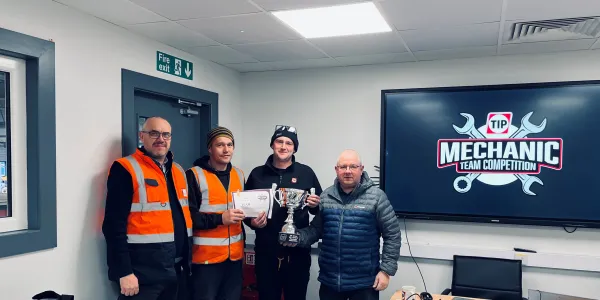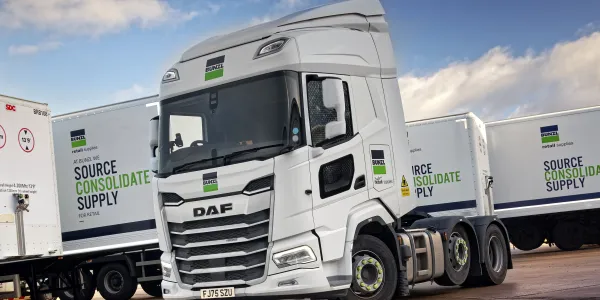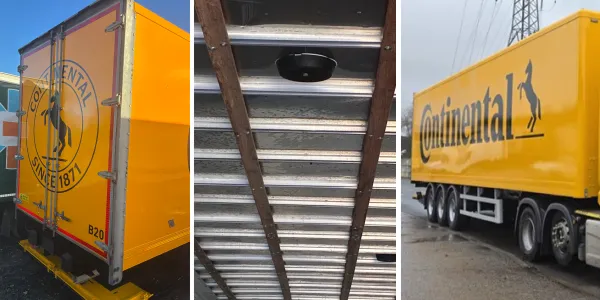TIP Group launches 'Fleet Carbon Assessment' initiative
Amsterdam, November 2025 - TIP Group has launched a dedicated Fleet Carbon Assessment to investigate the opportunities for transport and logistics companies to simplify their emissions accounting. With tightening sustainability expectations and evolving EU sustainability rules, the way fleets are managed today will determine the reporting complexity, compliance burden, and financing costs of tomorrow.
Fleet decisions that shape future compliance
Under frameworks such as the CSRD and EU Taxonomy, carbon transparency is no longer optional, companies must increasingly disclose granular carbon emissions data usually categorized into scopes according to the Greenhouse Gas (GHG) Protocol and the financial relevance of for example eligible low and zero emission assets. These regulations, combined with increased stakeholder interest, are driving changes across Europe:
“What started as a reporting exercise is now reshaping how capital flows in Europe,” says Markus Pretzl, ESG Director at TIP Group. “Banks and investors favour companies with a stronger sustainability profile because it lowers their cost of capital. A carbon assessment gives our customers a clear overview of their fleet related GHG inventory implications, helping them identify the best strategy to reduce complexity and optimise their position.”
Fleet operators should not underestimate the hidden costs of outright ownership. Buying vehicles requires them to report not only operational fuel use (Scope 1) and purchased electricity (Scope 2) but also lifecycle impacts from manufacturing to disposal (Scope 3). This means, depending on the organizational boundary selected and lease type, they carry the entire cradle-to-grave footprint in their carbon inventory, creating ongoing audit exposure and reporting complexity.

Determine the right mix for your company
When a company rents or leases an asset, it reports the operating emissions related to its use, either in Scope 1 and Scope 2 or in Scope 3, not the manufacturing or end-of-life footprint, depending on the company’s selected organizational boundary approach (i.e., equity share, financial control, or operational control), and the type of lease. Consequently, leasing or renting through TIP means that TIP, as the asset owner, accounts for these emissions beyond the use phase (Scope 3) for operating leases.
“If you decide to move away from owning a large fleet and start leasing or renting your assets, you will see an impact in your carbon inventory,” explains Pretzl. “And it’s not an all or nothing decision. For many companies, a mixed approach - combining owned, rented or leased and refurbished assets - makes the most sense. We take on the carbon accounting responsibility for a share of scope 3 emissions and the task of decarbonizing our value chain, but only for the leased and rented assets, as manufacturing and end-of-life emissions from owned assets remain with the customer. The goal of the assessment is, therefore, to help you determine the right mix for your company.”
This model also supports circularity. Through refurbishment and leaseback projects, TIP extends the life of semi-trailers, reducing the need for new manufacturing and the emissions that come with it.
“We are the right link in the value chain to shoulder this responsibility,” Pretzl concludes. In the coming years, we will also engage around 300 suppliers and customers to set their own decarbonization targets, sharing tools and insights to accelerate progress together. We work directly with manufacturers to decarbonize production, and with our customers to make reporting simpler, cleaner, and more transparent. Ultimately, that helps the entire industry move faster toward a low-carbon future.”
Partnering for measurable impact
TIP’s Fleet Carbon Assessment provides companies with a clear picture of how different fleet strategies affect their emissions reporting. The assessment quantifies the environmental benefit of each option, helps organisations align their decisions with ESG goals and engage with their auditors on carbon accounting questions, including how to address double counting under the Greenhouse Gas Protocol.
Get in touch with our experts



